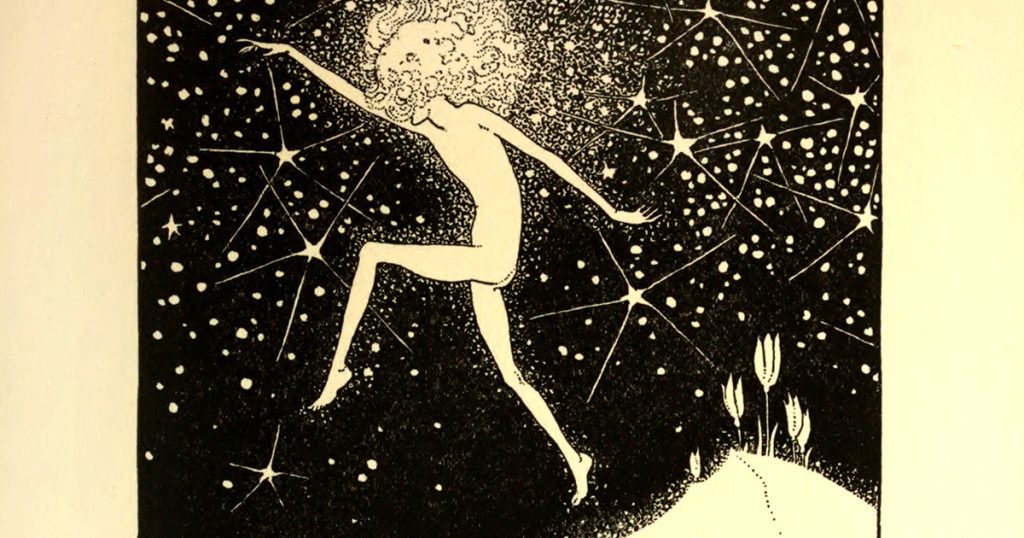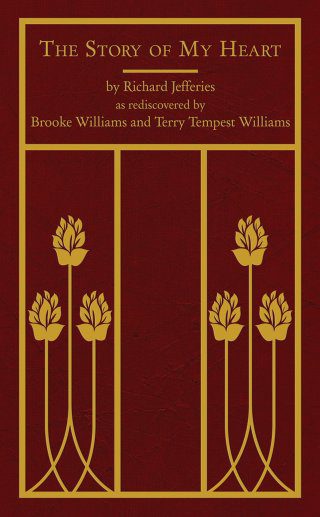This is the big contradiction: human life, lived between the lifespan of starlings and the lifespan of stars, gains significance completely within the self, but the self is an illusion of the mind, a creation of coherence that makes the disorder and impermanence bearable. Occasionally, if you are fortunate, something — an interaction with nature, a piece of art, a great love — ignites what Iris Murdoch so wonderfully called “an occasion for unselfing,” breaking down the cathedral of illusion and making you one with everything that has existed and will exist. Because time is the substance of being, past and future blend into one, and then disappear completely. For a moment, you become one with the absolute — not a self isolated in time, but a part of eternity.
The psychologist Abraham Maslow named such moments of timelessness and selflessness peak experiences — “the most blissful and perfect moments of life” — and positioned them at the top of his influential hierarchy of needs, in the realm of transcendence. He believed that every religion arose from them — from “the private, lonely, personal illumination, revelation, or ecstasy of some acutely sensitive prophet or seer.” After interviewing thousands of people about their peak experiences, Maslow discovered the key common factor — a deep sense that the universe is a harmonious whole to which one belongs and of which one is an indelible part, as essential to the integrated whole as any other, existing outside time.

I know of no more beautiful or deeply felt account of such contact with eternity than the one Richard Jefferies (November 6, 1848–August 14, 1887), patron saint of modern conservation, conveys in his altogether remarkable spiritual autobiography The Story of My Heart (public library).
In the final years of his short life, Jefferies experienced transcendence while climbing a hill he climbed regularly. (This is part of the mystery we are — why peak experiences unfold when they do, often in the midst of something familiar, something encountered countless times before without this shimmer of the miraculous.) The pinnacle of his impressive account of the experience is the realization that presence — this reverent attention to the present moment — is the ultimate gateway to eternity. A generation after Kierkegaard emphasized that “the moment is not properly an atom of time but an atom of eternity” and a century before Mary Oliver drew on Blake and Whitman to observe that “all eternity is in the moment,” Jefferies contemplates:
Realising that spirit, recognising my own inner consciousness, the psyche, so clearly, I cannot understand time. It is eternity now. I am in the midst of it. It is about me in the sunshine; I am in it, as the butterfly floats in the light-laden air. Nothing has to come; it is now. Now is eternity; now is the immortal life. Here this moment, by this tumulus, on earth, now; I exist in it. The years, the centuries, the cycles are absolutely nothing; it is only a moment since this tumulus was raised; in a thousand years it will still be only a moment. To the soul there is no past and no future; all is and will be ever, in now.
And yet it is only through the body — this perishable container of life — that the mind can comprehend the concept of timelessness; it is only through complete presence with the vitality of the moment that the soul can resonate with the ecstasy of eternity. Jefferies writes:
I dip my hand in the brook and feel the stream; in an instant the particles of water which first touched me have floated yards down the current, my hand remains there. I take my hand away, and the flow — the time — of the brook does not exist to me. The great clock of the firmament, the sun and the stars, the crescent moon, the earth circling two thousand times, is no more to me than the flow of the brook when my hand is withdrawn; my soul has never been, and never can be, dipped in time. Time has never existed, and never will; it is a purely artificial arrangement. It is eternity now, it always was eternity, and always will be.
Complement these fragments of the thoroughly soul-enriching Story of My Heart with two centuries of stunning reflections on time, from Borges to Nina Simone, then revisit Jefferies on nature as a prayer for presence and his contemporary Hermann Hesse regarding finding the essence within oneself.




